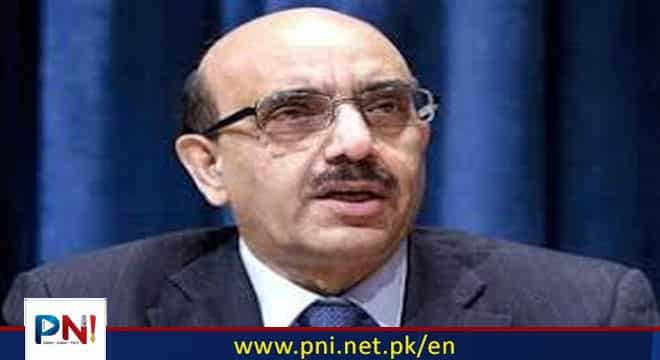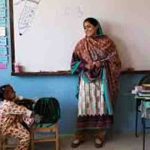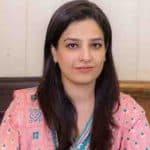Peshawar، Aug 16: Forging strong linkages between industry and academia are critical to accelerate Pakistan’s economic transformation. This was stated by Sardar Masood Khan, former President of Azad Jammu and Kashmir and Pakistan’s former Ambassador to the United States, China, and the United Nations, while addressing a day long seminar in Peshawar at The Millennium Universal College (TMUC).
He underlined that closer collaboration between the two sectors would ensure a skilled, market-ready workforce, greater innovation, and enhanced global competitiveness.
In the seminar several industrialists and academics made speeches and participated in panel discussion. This included Mr. Fazal Moqeem, President Sarhad Chamber of Commerce & Industries, Mr. Farhad Shafqat Qayyum, Head of Marketing, Communication, and Partnerships, National Incubation Centre, Peshawar, Dr. Sarina Zainab Shirazi HOD Business and Social Sciences TMUC, Pakistan, Ms. Qurat-ul-Ain Asif, Mentor & Business Expert, Mr. Fayaz Jarral Executive Director, FF Steel, Dr. Mehnaz Gul Associate Professor, Chairperson, Journalism & Mass communication, University of Peshawar and Mr. Rashid Aman, Provincial Chief SMEDA KP.
Outlining a roadmap to bridge the academic-industry gap, Ambassador Khan recommended practical, results-oriented measures, including structured internship programs, employment linkages, joint workshops, and regular job fairs. He also urged industry leaders to host orientation sessions for students within their facilities to provide real-world exposure to manufacturing, export markets, and technological applications. In addition, he highlighted the role of incubation centres and acceleration programs in nurturing start-ups, securing angel funding, and building collaborative platforms for knowledge exchange between universities and businesses.
Ambassador Khan placed these recommendations in the context of Pakistan’s emerging economic strength. He noted that the country has over 200 million mobile users, 140 million broadband subscribers, and a youthful demographic with 64% of the population under the age of 30—an asset for a technology-driven future.
Speaking about Khyber Pakhtunkhwa’s economic contribution, he said the province possesses fertile lands producing wheat, maize, tobacco, rice, sugar beets, and fruit, as well as a thriving small arms manufacturing sector and marble production industry. KP accounts for 9–10% of Pakistan’s GDP, with mining contributing around 20%, forestry between 34–81%, and strong performance in agriculture, manufacturing, remittances, trade, biogas, and oil production. He also pointed to the province’s rapid digital transformation, and the strategic role of the Special Economic Zone at Gadoon in boosting industrial growth.
Ambassador Khan called for greater cooperation between Azad Jammu and Kashmir (AJK) and Khyber Pakhtunkhwa in sectors such as forestry, olive cultivation, and the sharing of educational expertise between institutions. Such collaborations, he said, could enhance regional productivity, foster innovation, and expand market access.
Highlighting the pace of Pakistan’s digitization, he noted that technology adoption is growing exponentially, offering unprecedented opportunities in e-commerce, financial services, and global outsourcing. He encouraged chambers of commerce to “go global” by developing strong international partnerships, expanding into new markets, and positioning Pakistan as a competitive player in the global economy.
Commending Dr. Sameen Shah and the organizers for assembling a diverse and influential audience, Ambassador Khan outlined a clear vision for leveraging Pakistan’s human capital through academic-industry partnerships. He praised TMUC’s role as a hub of transnational education, with partnerships across ten prestigious UK universities, including the University of London, University of Hertfordshire, and the London School of Economics. He emphasized that TMUC’s programs are aligned with market needs, particularly in professional fields like law, where graduates are equipped for both domestic and international practice.
In closing, Sardar Masood Khan called for urgency and coordinated action: “We are sitting on a goldmine of human talent, natural resources, and entrepreneurial energy. By uniting academia and industry in purpose and practice, we can redefine Pakistan’s economic trajectory.”
Follow the PNI Facebook page for the latest news and updates.









